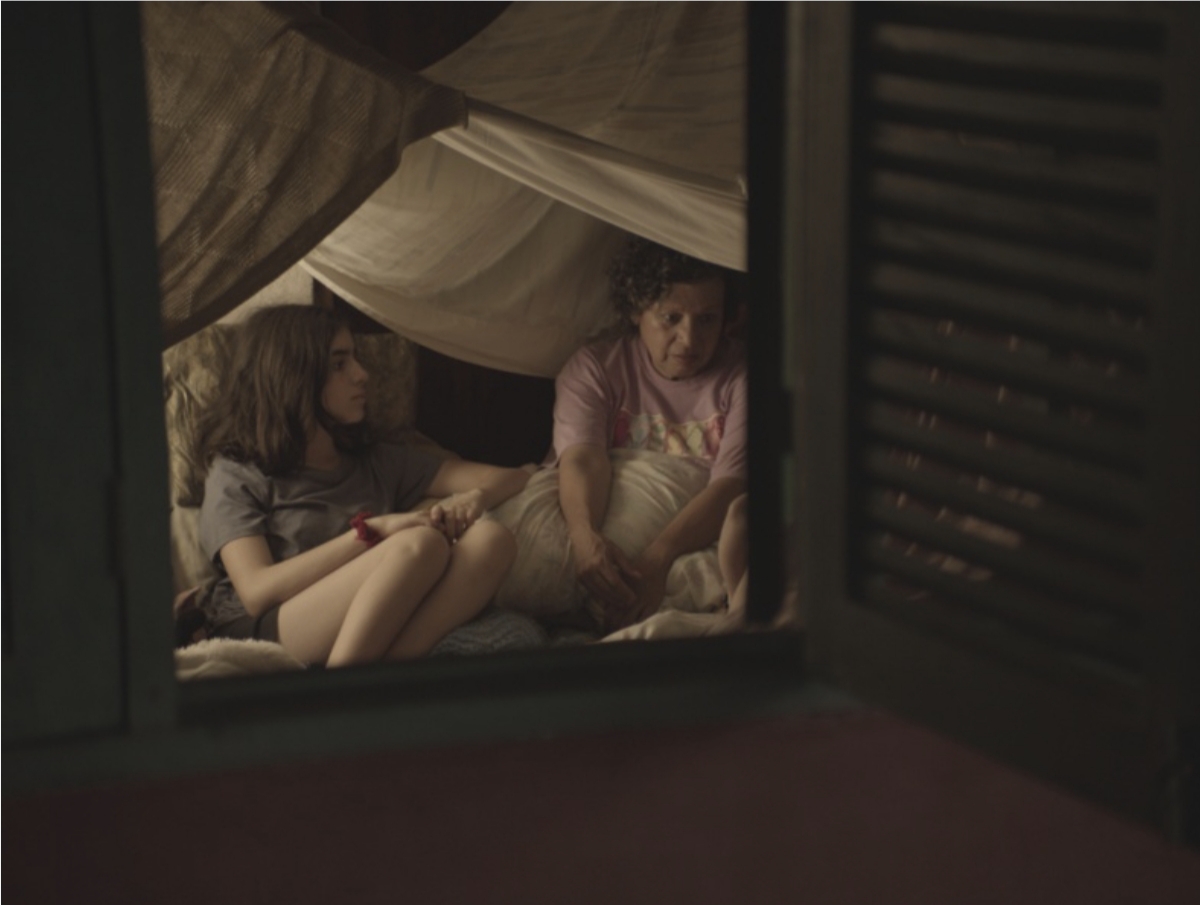If We Don’t Burn, How Do We Light Up the Night
Si no ardemos como iluminar la noche
VERDICT: Kim Torres' first film is a sober and sensitive coming-of-ager.
Laura (Lara Yuma Mora) is in her early teens, a girl who is all long limbs and an awful mood. She moves with her mother Miriam (Michelle Jones) and brother Esteban (José Gabriel Guzmán) to the small town of El Silencio from the capital of Costa Rica. They will live with the Portuguese widower Bruno (Luis Carlos Canhoto Baptista), her mother’s boyfriend, and his daughter Gabi (Valentina Chaves Jiménez), who is always in a bubbly good mood, which infuriates Laura even more. But like Ingemar before her in My Life as a Dog (Lasse Hällstrom, 1985), Laura discovers that rural life has its advantages.
Like Ingemar, too, she’s crazy about soccer, and in the town she can play and even form a team. Daniela (Keylin Delgado), a local girl the same age, has a lot to teach Laura. From applying makeup to praying appropriately: “Heavenly Father, please allow Laura to travel, may the plane not crash on the outward journey or on the return journey, and forgive my sins… It’s always necessary to ask for forgiveness.”
But there’s another dimension to El Silencio. Stories of danger that Gabi calls supernatural, but Laura begins to see as a human threat. For years, dead women have been appearing in the river. They are mourned and remembered in a moving ceremony attended mainly by women. The true coming-of-age part—according to the screenplay by Kim Torres and Laura Mora Fernández—begins when Laura must decide whether to believe the monsters are supernatural or disturbed people.
Dirctor Kim Torres has wisely stripped away any unnecessary embellishments from her first film. The linear, clean narrative creates empathy for the protagonists and women in danger. It avoids the over-explaining so common in debut films and the didactic tone when dealing with domestic violence. A single sentence explains Laura’s disdain for her father.
The tone is always sober, with no percussion sounds or quick cuts in the shots when the plot thickens. The anguish is present only through the performances, filled with pointed glances.
The cast—made up of young novices and some professionals—forms a team that works very naturally. Mexican actor Teresa Sánchez (Gloria) competently plays a role similar to the one she played in Totem (Lila Avilés, 2023), a kind of warm aunt who is a co-conspirator but knows how to be the adult when necessary.
Kim Torres spent more than five years working on this project. This slow distillation, with the COVID-19 pandemic in the middle, has removed the film’s redundant elements and gives it a style that the director can now claim as her own. Hopefully her future films will maintain this sobriety of the style, but will be made in less time.
Direction: Kim Torres
Screenplay: Kim Torres, Luisa Mora Fernández
Producers: Ale Vargas Carballo, Mariana Monroy, Camille Ferrero, Lucile Ric y Charles Philippe
Cast: Lara Yuja Mora, Keylin Delgado Arguedas, Valentina Chaves Jiménez, Teresa Sánchez, Michelle Jones, Juan Luis Araya, Jose Gabriel Guzmán Rodríguez, Luis Carlos Canhoto Baptista da Silva, Sebastián Sánchez Soza
Cinematography: Mel Nocetti
Music: Delphine Malaussena
Edition: Nicole Chi Amén, Omar Guzmán
Sound: Thomas Becka
Art Direction: Mauricio Esquivel
Produccion companies: Noche Negra Producciones (Costa Rica) en Co-Produción con Tropical Films (Mexico) y Les Films du Clan (France)
World sales: Urban Sales (France)
Running time: 88 min.
Reviewed in : Festival Internacional de San Sebastián (New Directors)
In Spanish

